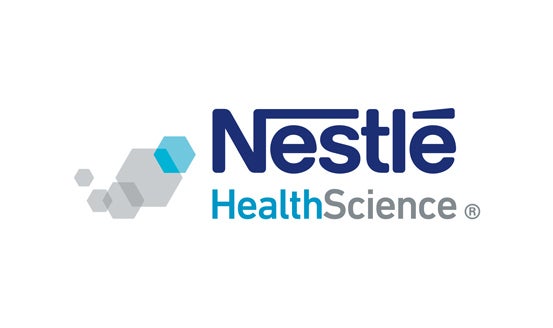
New analysis supports predictive accuracy of the Cow’s Milk-related Symptom Score (CoMiSS®) for Cow’s Milk Protein Allergy
CoMiSS® designed for primary health professionals to assess potential cow’s milk protein allergy (CMPA) in infants presenting with delayed, non-specific symptoms so earlier nutritional intervention can be considered
Epalinges, Switzerland, May 2017 – The publication of a new pooled analysis of three prior clinical trials provides important evidence in support of CoMiSS®, an awareness tool to help primary healthcare professionals assess the likelihood of cow’s milk protein allergy (CMPA) in infants with delayed non-specific symptoms1,2,3. No laboratory test currently exists for non-IgE mediated CMPA and the Cow’s Milk-related Symptom Score (CoMiSS®)4 is already being used in many countries since its launch in 2015.
The paper was published in Pediatric Gastroenterology, Hepatology and Nutrition (March 2017). The analysis indicates that CoMiSS® can predict the likelihood of CMPA in infants exhibiting delayed non-specific symptoms with an accuracy of 75%. CoMiSS® has been developed by clinicians experienced in pediatric gastroenterology and allergology.
The role of CoMiSS®
CMPA impacts up to 3%5 of infants and can in some cases cause an immediate (IgE mediated) allergic reaction within minutes or hours. But in many cases, an infant’s reaction to milk protein is not immediate. In these non–IgE mediated cases the condition can present with delayed development of symptoms that may include excessive crying or regurgitation, stool, skin and respiratory manifestations. Because these symptoms are not specific to CMPA, primary healthcare professionals can find them challenging to interpret and this can lead to delays – sometimes of several months – in therapeutic intervention.
This is where CoMiSS® fits in. Typically it takes the primary healthcare professional in conjunction with the parent and infant around five minutes to complete the simple and easy-to-complete CoMiSS® scoring system. A range of scores is marked based upon the frequency and type of these non-specific symptoms. An overall score of 12 or higher helps identify infants likely to have CMPA.
Pooled Analysis Methodology
The pooled analysis comprised 170 infants (about 3 months old) who were initially given a CoMiSS® score of 12 or higher, and who scored below 12 (average 5) after one month on an hypoallergenic specialty formula. The analysis showed that these infants had a 75% likelihood for a positive food challenge test undertaken with cow's milk protein when CoMiSS® was re-scored. Non-IgE mediated CMPA cannot be diagnosed by blood test and the food challenge test – which requires an elimination diet (excluding milk proteins) to be implemented – is currently the gold standard for CMPA diagnosis, however it is not always performed.
Professor Yvan Vandenplas from the UZ Brussel’s Department of Pediatrics in Belgium was the leading author of the just published paper and one of the experts behind the CoMiSS® tool. He said: ”The pooled data across three studies supports the value of CoMiSS® as an awareness tool for CMPA, as does the feedback from healthcare professionals who use it. With CoMiSS®, primary healthcare clinicians now have an easy and fast scoring system to assess the likelihood of CMPA. Symptomatic children who score 12 or higher on the CoMiSS® score can be considered for alternative nutritional approaches much earlier in life.”
A prospective validation study is currently ongoing. CoMiSS® is available through Nestlé Health Science in hard copy, can be downloaded from the web or completed on-line. It is available in 12 languages.
About CoMiSS®
Developed by top international experts, CoMiSS® (Cow’s Milk-related Symptom Score), is a fast and easy-to-use awareness tool that can aid an earlier accurate diagnosis.
Key References
1. Vandenplas Y, Steenhout P, Planoudis Y, Grathwol D; Althera Study Group. Treating cow’s milk protein allergy: a double-blind randomized trial comparing two extensively hydrolysed formulas with probiotics. Acta Paediatr. 2013 Oct;102(10):990-8.
2. Vandenplas Y, De Greef E, Hauser B, Paradice Study Group. Safety and tolerance of a new extensively hydrolyzed rice protein-based formula in the management of infants with cow’s milk protein allergy. Eur J Pediatr. 2014;173:1209-16.
3. Vandenplas Y, De Greef E, Xinias I, Vrani O, Mavroudi A, Hammoud M, et al Allar Study Group. Safety of a thickened extensive casein hydrolysate formula. Nutrition. 2016;32:206-1Høst A. Frequency of cow’s milk allergy in childhood. Ann Allergy Asthma Immunol 2002;89(Sup1):33-7.
4. Vandenplas Y, Dupont C, Eigenmann P, Host A, Kuitunen M, Ribes-Koninckx C, et al. A workshop report on the development of the Cow’s Milk-related Symptom Score awareness tool for young children. Acta Paediatr. 2015;104:334-9.
5. Høst A. Frequency of cow’s milk allergy in childhood. Ann Allergy Asthma Immunol 2002;89(Sup1):33-7.
